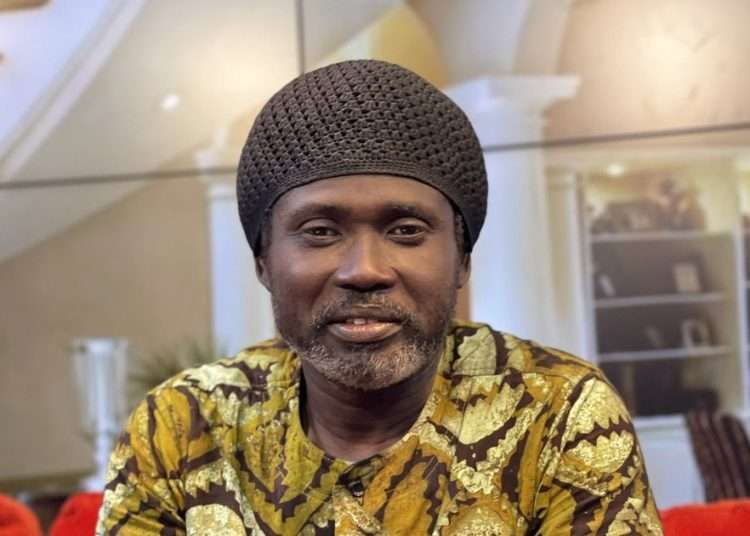Music is often described as a universal language, transcending borders, cultures, and generations. Its ability to evoke emotions, convey messages, and inspire action is unparalleled.
Throughout history, music has served as a form of entertainment and a powerful medium for communication, reflection, and social change.
The messages embedded in music resonate across time, serving as a bridge between the past, present, and future.
Known for his unique country-music-like style of gospel music and interesting themes, Anim Yirenkyi for the past 26 years has won the hearts of music lovers across religions and ages in Ghana.
The renowned gospel artist, Mark Anim-Yirenkyi disclosed that he no longer believes in religious music, but believes there is good and bad music. “The message of music is something that must serve generations, so I believe in good music and bad music. I don’t believe in religious music again,” he stated.
While emphasizing the essence of music, Anim-Yirenkyi admonished “Governments have to motivate people to make music that reminds the people of their role in nation-building”.
From the folk songs of ancient civilizations to the protest anthems of the 20th century, music has always carried messages that reflect societal values, struggles, and aspirations.
For instance, the spirituals sung by enslaved African Americans conveyed deep emotions of hope and resilience, while also serving as a means of covert communication.
Similarly, the civil rights movement saw the emergence of powerful songs like “We Shall Overcome,” which united individuals in their quest for equality and justice.
He pointed out that Africa is not able to do what needs to be done with the things it is endowed with because of mislearning.
“I believe in ‘nation-making’ music. The governments have to motivate people to make music that actually reminds people of their role in nation-building because nobody is coming to do it for us. We are born into a world that has everything; all we need is to know but if your teacher is the one you are learning from to come and conquer then the classroom should be your battlefield.”
Mark Anim-Yirenkyi
Lyrics are often the most direct way that music communicates its message. Poetic and evocative, they articulate complex emotions and ideas in a way that resonates with listeners.
Consider the poignant lyrics of “Imagine” by John Lennon, which envisions a world of peace and unity. The simplicity of the message allows it to transcend time and remain relevant, inspiring listeners to dream of a better world.
Moreover, the power of lyrics lies in their ability to evoke personal and collective memories. A song played during a significant moment in one’s life evokes nostalgia, while also serving as a reminder of the values and lessons learned during that time.
Music as a Catalyst for Change

Throughout history, music has played a crucial role in social movements, acting as a catalyst for change.
The impact of music on social movements highlights its potential to inspire and mobilize individuals.
When a song resonates deeply with listeners, it motivates them to take action, whether that’s participating in protests, advocating for policy changes, or simply spreading awareness.
The messages conveyed through music empower individuals to believe in their ability to effect change, creating a ripple effect that influences generations.
According to Mark Anim-Yirenkyi, music is spiritual but some people have deceitfully placed it under entertainment, music is to remind one of who one is, where one is coming from, and where one is going.
“What Africans need now is a God that will open our eyes and tell us what to do with what we already have in order to get liberation. If you don’t know what you have, you will leave billions to beg for thousands because you don’t know what you have.
“If it is called racism when a black person is despised or discriminated against by a white man, what is it called when a black person despises himself or herself? When you dream, you should dream about what you can do to liberate yourself and liberate others.”
Mark Anim-Yirenkyi
In the digital age, the accessibility of music has transformed how messages are shared and consumed.
Platforms like Spotify, YouTube, and social media allow artists to reach global audiences, ensuring that their messages resonate far beyond their immediate communities.
Songs that address themes of love, loss, hope, and resilience resonate across generations, providing comfort and understanding in times of uncertainty.
The messages in music hold the power to transcend time, serving as a legacy for generations to come. They reflect the struggles and aspirations of individuals and communities, acting as a catalyst for social change and a source of inspiration.
By embracing the timeless nature of music, it ensures that its messages continue to resonate, inspire, and unite us in our shared journey through life.
READ ALSO: Revenue Obsession of African Regulators, a Costly Obsession























